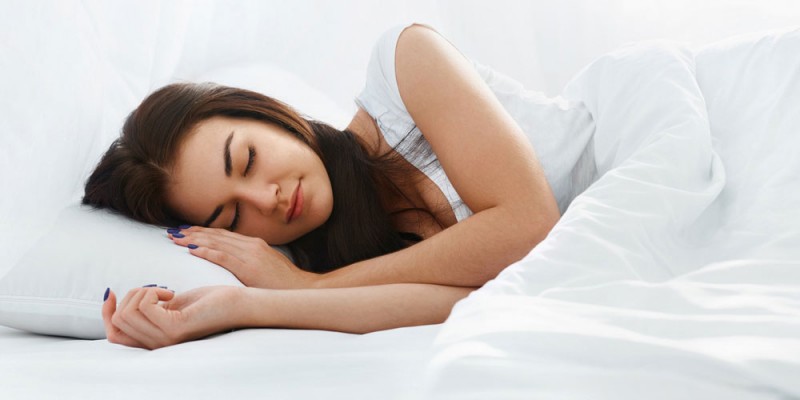
In our fast-paced modern world, sleep is often overlooked or sacrificed to accommodate busy schedules and demanding lifestyles. However, the importance of sleep for both skin health and overall well-being cannot be overstated. Beauty sleep is not just a myth; it is a crucial aspect of maintaining radiant skin and optimal health. In this article, we will delve into the secrets of beauty sleep, exploring the relationship between sleep and skin health, as well as understanding the various ways sleep impacts our overall physical and mental well-being.
Why Sleep Matters
The Role of Sleep in Skin Repair and Renewal
During deep sleep, the body goes into repair mode, and this includes the skin. The production of collagen, the protein responsible for skin's elasticity and strength, increases during sleep. Adequate sleep allows the skin to repair itself from daily damage caused by environmental factors.
Sleep's Impact on Collagen Production
Collagen is essential for maintaining youthful and supple skin. Lack of sleep leads to a decrease in collagen production, resulting in the appearance of fine lines and wrinkles. Consistent quality sleep contributes to the preservation of collagen, promoting a more youthful complexion.
Sleep and Skin Hydration
Proper hydration is vital for glowing skin. During sleep, the body's hydration balance is restored, helping to prevent dry and dull skin. Insufficient sleep disrupts this balance, leading to dehydrated skin and potential long-term damage.
The Connection Between Sleep and Skin Conditions
Acne and Sleep Patterns
Sleep deprivation can worsen acne. Lack of sleep triggers stress responses in the body, leading to the release of hormones that promote acne formation. Restorative sleep, on the other hand, helps reduce stress and inflammation, contributing to clearer skin.
Eczema and Its Relationship with Sleep
Eczema flare-ups are often linked to poor sleep quality. The itching and discomfort caused by eczema can disrupt sleep patterns, leading to a vicious cycle of exacerbated symptoms. Improving sleep can help manage eczema and reduce its impact on daily life.
Premature Aging and Lack of Sleep
Chronic sleep deprivation accelerates the aging process. During deep sleep, the body produces human growth hormone (HGH), responsible for repairing and regenerating tissues. Insufficient HGH due to lack of sleep can lead to premature aging, manifesting as sagging skin and uneven skin tone.
How Sleep Affects Overall Health
The Link Between Sleep and Immune Function
A well-rested body has a stronger immune system, better equipped to fight off infections and illnesses. Sleep plays a crucial role in supporting the immune system's function, making it essential for overall health and well-being.
Sleep's Influence on Weight Management
Inadequate sleep disrupts the balance of hunger-regulating hormones, leading to increased appetite and potential weight gain. Sufficient sleep helps regulate these hormones, aiding in weight management efforts.
Mental Health and the Importance of Sleep
Sleep and mental health are closely intertwined. Lack of sleep can lead to mood swings, irritability, and heightened stress levels. Quality sleep is essential for emotional stability and mental clarity.
Tips for Achieving Quality Sleep
Creating a Relaxing Bedtime Routine
Establishing a calming bedtime routine signals the body that it's time to wind down. Activities such as reading, meditation, or a warm bath can promote relaxation and better sleep.
Optimizing Sleep Environment
A conducive sleep environment is essential for quality rest. Ensure your bedroom is dark, quiet, and at a comfortable temperature to support uninterrupted sleep.
The Role of Nutrition in Promoting Better Sleep
Avoid heavy meals close to bedtime, and opt for sleep-friendly foods like nuts, bananas, or warm milk. Proper nutrition can enhance sleep quality.
Additional Beauty Tips for Glowing Skin
Skincare Regimen for a Radiant Complexion
A consistent skincare routine tailored to your skin type and concerns can enhance your skin's natural radiance. Cleansing, exfoliating, and moisturizing play crucial roles in achieving glowing skin.
Sun Protection and Its Impact on Skin Health
Protecting your skin from harmful UV rays is vital for preventing premature aging and reducing the risk of skin cancer. Always use sunscreen and seek shade during peak sun hours.
Hydration and Nutrition for Nourished Skin
Drinking plenty of water and consuming a balanced diet rich in antioxidants and essential nutrients nourishes the skin from within, resulting in a healthy and vibrant complexion.
In conclusion, beauty sleep is not just a concept; it is a fundamental aspect of maintaining healthy, radiant skin and overall well-being. Adequate sleep supports skin repair, collagen production, and hydration, contributing to a youthful complexion. Furthermore, quality sleep is essential for overall health, immune function, weight management, and mental well-being. By prioritizing sleep and adopting healthy lifestyle habits, we can unlock the secrets to glowing skin and a healthier, happier life.
The Serenity of Seychelles: Secluded Beaches and Island Adventures
Summer in the Swiss Riviera: Discovering the Beauty of Lake Geneva and Montreux
Adventure and Trekking in the Swiss Alps: Enjoying the Stunning Scenery